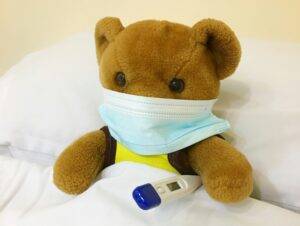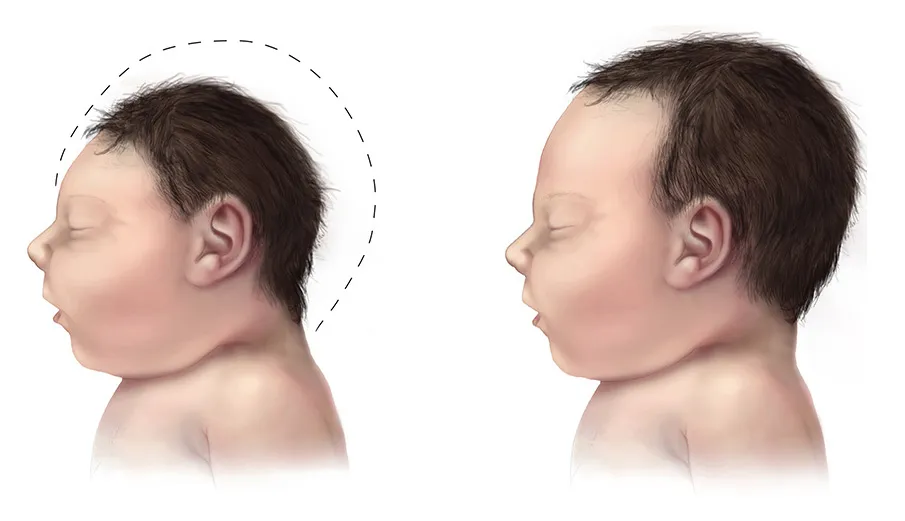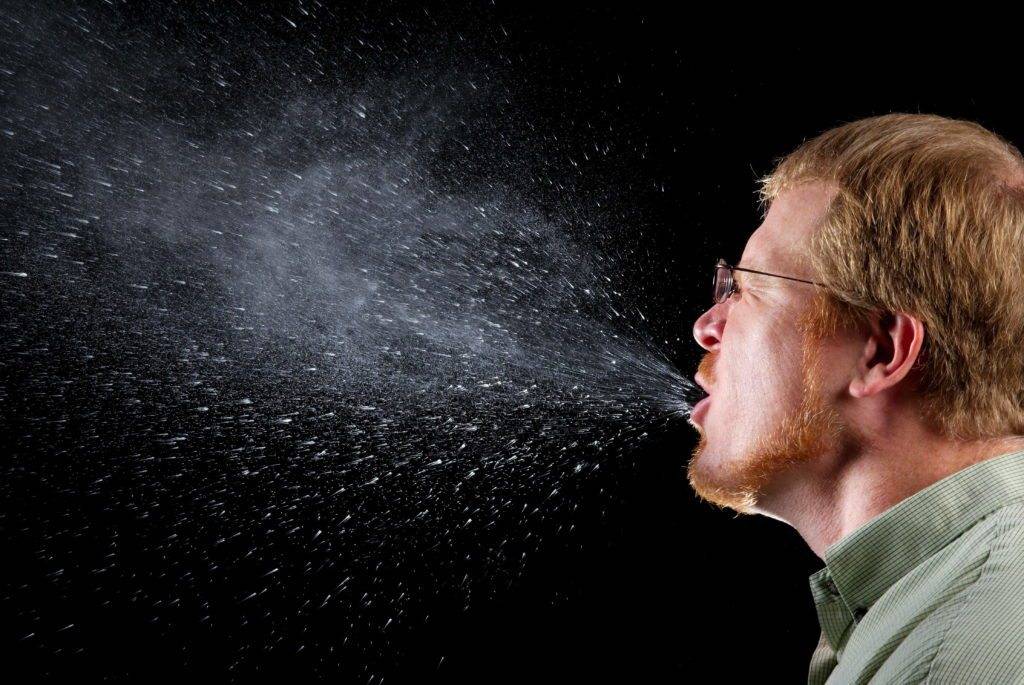Strep throat is a common bacterial infection caused by the Streptococcus pyogenes bacteria. It primarily affects the throat and tonsils, leading to significant discomfort and other symptoms. This infection is prevalent among school-aged children, between the ages of 5 and 15.
Recognizing the early signs helps in seeking time for medical intervention and using appropriate treatments to alleviate discomfort. While strep throat requires prescribed antibiotics for complete treatment, over-the-counter (OTC) medications help ease the symptoms and make your child more comfortable while the antibiotics do their job.
Recognizing Strep Throat Symptoms

Early identification of the symptoms leads to faster treatment and relief for your child. The symptoms vary in severity but generally include:
- Severe sore throat: Unlike a typical sore throat caused by a cold, strep throat is more intense and persistent.
- Red and swollen tonsils: Often accompanied by white patches or streaks of pus.
- Tiny red spots: These may appear on the roof of the mouth. specifically on the area at the back of the roof of the mouth.
- Fever: A high fever is common with strep throat.
- Headache and stomach pain: These symptoms can also occur in children with strep throat.
- Nausea or vomiting: Some children may experience gastrointestinal symptoms.
- Swollen lymph nodes: Particularly in the neck, which may be tender to the touch.
- Difficulty swallowing: Pain and discomfort can make it hard for children to eat and drink.
Why OTC Medications Are Important
While antibiotics are necessary to eliminate the strep bacteria, they don’t relieve the symptoms immediately. This is where OTC medications come in. They help manage pain, reduce fever, and soothe throat irritation, making it easier for your child to eat, drink, and sleep.
Top Over-the-Counter Medications for Children’s Strep Throat Relief
1. Acetaminophen (Tylenol)
Pain Relief and Fever Reduction: Acetaminophen medication, commonly known as Tylenol, is a reliable choice for reducing fever and relieving pain in children with strep throat. It’s gentle on the stomach and can be used in infants as young as two months old. Always follow the dosage instructions based on your child’s age and weight.
Dosage and Administration
- Infants (0-3 months): Consult your pediatrician.
- Infants (4-11 months): 80 mg (ask your doctor for the exact amount).
- Children (12-23 months): 120 mg every 4-6 hours, not exceeding 5 doses in 24 hours.
- Children (2-3 years): 160 mg every 4-6 hours, not exceeding 5 doses in 24 hours.
- Children (4-5 years): 240 mg every 4-6 hours, not exceeding 5 doses in 24 hours.
2. Ibuprofen (Advil, Motrin)
Anti-inflammatory and Pain Relief: Ibuprofen, found in brands like Advil and Motrin, is another effective OTC medication for pain and fever relief. It has anti-inflammatory properties that reduce throat swelling and discomfort. Ibuprofen is suitable for children six months and older.
Dosage and Administration
- Infants (0-6 months): Consult your pediatrician.
- Infants (6-11 months): 50 mg every 6-8 hours, not exceeding 4 doses in 24 hours.
- Children (12-23 months): 75 mg every 6-8 hours, not exceeding 4 doses in 24 hours.
- Children (2-3 years): 100 mg every 6-8 hours, not exceeding 4 doses in 24 hours.
- Children (4-5 years): 150 mg every 6-8 hours, not exceeding 4 doses in 24 hours.
3. Throat Lozenges
Soothing Throat Pain: Throat lozenge medications temporarily relieve a sore throat. Brands like Chloraseptic and Cepacol offer lozenges with mild anesthetics that numb the throat. These are safe for children over the age of six. However, always supervise younger children to prevent choking.
Popular Brands
- Chloraseptic: Known for its numbing effect, these provide fast relief.
- Cepacol: These lozenges have both numbing and antibacterial properties.
- Halls: Although primarily for cough, Halls lozenges can also soothe a sore throat.
4. Saltwater Gargle
Natural Relief: A saltwater gargle is a natural remedy. Mixing half a teaspoon of salt in a cup of warm water and having your child gargle it reduces throat swelling and discomfort. While not a medication, it’s an effective and safe method to relieve symptoms.
How to Prepare and Use
- Mix half a teaspoon of salt in a cup of warm water.
- Have your child gargle the solution for about 30 seconds.
- Repeat every three to four hours as needed.
5. Honey and Warm Liquids
Natural Soothing Properties: Honey has natural antibacterial properties and coats and soothes the throat. Mixing honey in warm water or tea provides relief. This remedy, though not medications, is suitable for children over one year old due to the risk of botulism in younger infants.
Recipe for Honey Tea
- Boil a cup of water.
- Add a teaspoon of honey to the hot water.
- Let it cool to a safe temperature.
- Have your child sip the honey tea slowly.
6. Over-the-Counter Throat Sprays
Targeted Pain Relief: OTC throat sprays like Chloraseptic, as medications, provide quick, localized relief by numbing the throat area. These sprays are generally safe for children over the age of three. Spray before meals to ease swallowing pain.
How to Use
- Follow the instructions on the label.
- Spray directly onto the throat area.
- Use as needed, but don’t exceed the recommended number of sprays per day.
Additional Home Remedies for Strep Throat Relief

While OTC medications are effective, combining them with home remedies enhances relief and comfort for your child. Here are some additional home remedies:
1. Hydration: Drink plenty of fluids to moisten the throat and reduce irritation. Encourage your child to drink water, clear broths, and warm teas. Avoid caffeinated or carbonated drinks, as they irritate the throat further.
2. Humidifiers: Use in your child’s room to add moisture to the air, soothing a dry and sore throat. Ensure it’s clean to prevent the growth of mold and bacteria.
3. Rest: Resting helps the body fight the infection more effectively. Provide a comfortable and quiet environment for your child to relax and sleep.
4. Warm Compress: Apply at the neck to reduce throat pain and swelling. Soak a cloth in warm water, wring it out, and apply it to the neck for about 10 minutes.
Tips for Administering OTC Medications to Children
Giving medications to children can be challenging. Here are some tips to ensure they get the full benefit:
- Follow dosage instructions carefully: Dosage is usually based on your child’s weight and age.
- Use a medicine syringe: This is more accurate than a spoon.
- Make it a routine: Administer medicine at the same time daily to avoid missed doses.
- Reward cooperation: Small rewards encourage your child to take medication without fuss.
When to See a Doctor
While OTC medications help manage symptoms, see a doctor if you suspect your child has strep throat. A rapid strep test or a throat culture confirms the diagnosis and prescribes antibiotics.
If symptoms persist for more than 48 hours after starting antibiotics or medications, or if your child has difficulty breathing or swallowing, seek medical attention immediately.
Preventing Strep Throat
- Teach good hygiene: Encourage frequent handwashing with soap and water.
- Avoid sharing utensils: Don’t let your child share cups, plates, or eating utensils with others.
- Replace toothbrushes: Once the infection is gone, replace your child’s toothbrush to prevent reinfection.
- Keep your child home: If diagnosed with strep throat, keep them home from school or daycare until they’ve been on antibiotics for at least 24 hours and their fever is gone.
Understanding the Role of Antibiotics
While OTC medications can help alleviate the symptoms of strep throat, antibiotics are necessary to treat the underlying bacterial infection. Here’s what you need to know about antibiotics for strep throat:
- How Antibiotics Work: Antibiotics kill the bacteria causing the infection or preventing them from multiplying. For strep throat, the most commonly prescribed antibiotics medications are penicillin and amoxicillin. These antibiotics treat the disease and prevent complications such as rheumatic fever.
- Importance of Completing the Course: It’s crucial to complete the course of antibiotics as prescribed, even if your child feels better before the medication is finished. Stopping antibiotics early results in the bacteria not being eliminated, leading to a recurrence of the infection and potential resistance to the antibiotic.
Common Antibiotics for Strep Throat
- Penicillin: Usually administered as oral medications or, in some cases, as an injection.
- Amoxicillin: Preferred for children due to its taste and less frequent dosing.
- Cephalexin: An alternative for those allergic to penicillin.
- Azithromycin: Used for patients with severe penicillin allergies.
Monitoring Your Child’s Progress:
Monitor your child’s progress after starting antibiotics and using OTC medications to manage symptoms. Here are some key points to consider:
- Symptom Improvement: Most children feel better within 24 to 48 hours of starting antibiotics medications. If there’s no improvement after this period, or if symptoms worsen, contact your doctor.
- Side Effects of Antibiotics: Common side effects of antibiotic medications include stomach upset, diarrhea, and allergic reactions. If your child experiences severe side effects such as difficulty breathing or swelling, seek medical attention immediately.
- Follow-Up Visits: A follow-up visit to the doctor may be necessary to ensure the infection has been fully treated. This is especially important if your child has severe symptoms or if there are concerns about complications.
Long-Term Management and Recurrence Prevention
Once your child has recovered from strep throat, there are steps you can take to prevent recurrence and maintain overall throat health:
- Strengthening the Immune System: A strong immune system can help your child fight off infections more effectively. Ensure your child eats a balanced diet of fruits, vegetables, lean proteins, and whole grains. Regular physical activity and adequate sleep are also important for immune health.
- Avoiding Exposure to Infected Individuals: Strep throat is highly contagious. Teach your child to avoid close

contact with individuals with the symptoms of strep infection or other respiratory infections. Encourage good hygiene practices such as covering the mouth when coughing or sneezing and washing hands frequently.
- Routine Health Check-Ups: Regular visits to the pediatrician can help monitor your child’s overall health and catch any potential issues early. Discuss recurring throat problems or other health concerns with your child’s doctor.
Myths and Misconceptions About Strep Throat
- Myth 1: Strep Throat Only Affects Children
While strep throat is more common in children, adults can also get it. Anyone can be infected with the Streptococcus pyogenes bacteria.
- Myth 2: Strep Throat Always Comes with a Cough
Coughing is more commonly associated with viral infections. Strep throat typically presents with a sore throat, fever, and swollen lymph nodes, but not necessarily a cough.
- Myth 3: Once You’ve Had Strep Throat, You Won’t Get It Again
It’s possible to get strep throat more than once. The bacteria can infect individuals multiple times, especially if exposed to someone with the infection.
- Myth 4: Strep Throat Will Go Away on Its Own
Strep throat requires antibiotic treatment to prevent complications. If left untreated, the infection leads to serious conditions such as rheumatic fever and kidney inflammation.
Take OTC Medications to Relieve Strep Throat Symptoms
Strep throat can be uncomfortable for children, but with the right over-the-counter medications and home remedies, you can help manage their symptoms effectively. Always consult a healthcare professional before starting any new medicine, and follow the recommended dosage instructions.
Combining these OTC remedies with prescribed antibiotics will ensure your child recovers quickly and comfortably. For additional information on treating sore throats and other pediatric health concerns, check out our blog resources: Strep Throat Recovery: Kids Get Relieved and Happy After a Few Days and 14 Ways to Help Your Child Be Comfortable with Strep Throat Symptoms.
Early intervention and proper management can make a significant difference in your child’s recovery from strep throat. These tips and remedies provide the best care and comfort for your little one.





